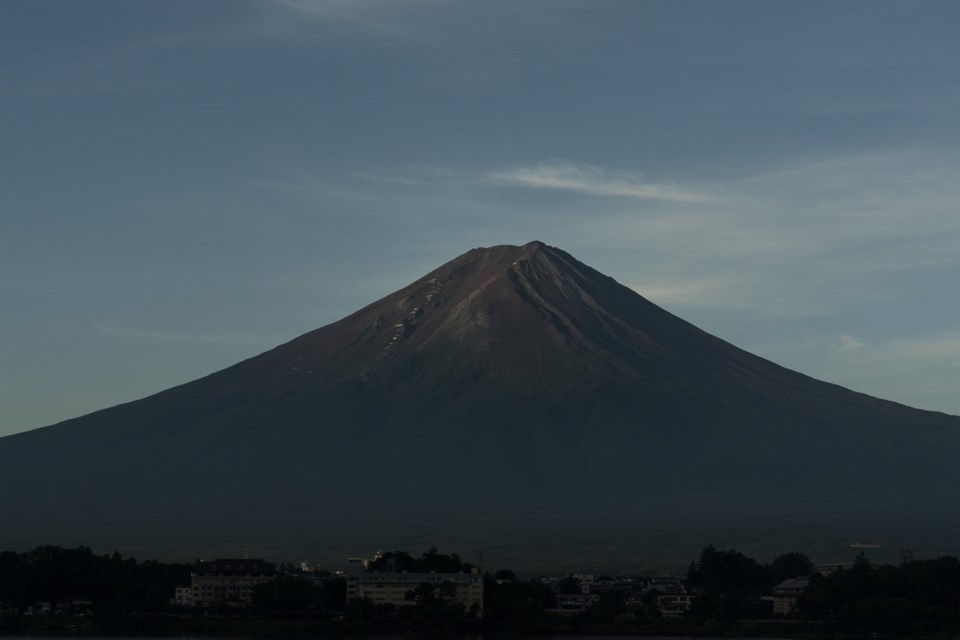TOKYO (AP) — Japan's iconic Mount Fuji, known for its snowcap forming around this time of the year, is still snowless in November for the first time in 130 years, presumably because of the unusually warm temperatures in the past few weeks.
The lack of snow on Mt. Fuji, a UNESCO World Heritage site, as of Tuesday breaks the previous record set on Oct. 26, 2016, meteorological officials said.
Usually, the 3,776-meter- (nearly 12,300-foot-) high mountain has sprinkles of snow falling on its summit starting Oct. 2, about a month after the summertime hiking season there ends. Last year, snow fell on the mountain on Oct. 5, according to the Japan Meteorological Agency, or JMA.
The snowless Mt. Fuji has captured attention on social media. People posted photos showing the bare mountain, some expressing surprise and others concerned over climate change.
The JMA's Kofu Local Meteorological Office, which keeps weather data in central Japan and was the agency that announced the first snowfall on Mt. Fuji in 1894, has cited October's surprisingly summery weather as the reason.
The average October temperature is minus 2 Celsius (28.4 Fahrenheit) at the summit, but this year, it was 1.6 Celsius, (34.9 F), a record high since 1932.
Japan this year also had an unusually hot summer and warm autumn.
A symbol of Japan, the mountain called “Fujisan” used to be a place of pilgrimage. The mountain with its snowy top and near symmetrical slopes have been the subject of numerous forms of art, including Japanese ukiyoe artist Katsushika Hokusai's Thirty-six Views of Mount Fuji.
Today, it attracts hikers who climb to the summit to see the sunrise. But tons of trash left behind and overcrowding have triggered concern and calls for environmental protection and measures to control overtourism.
Mari Yamaguchi, The Associated Press



